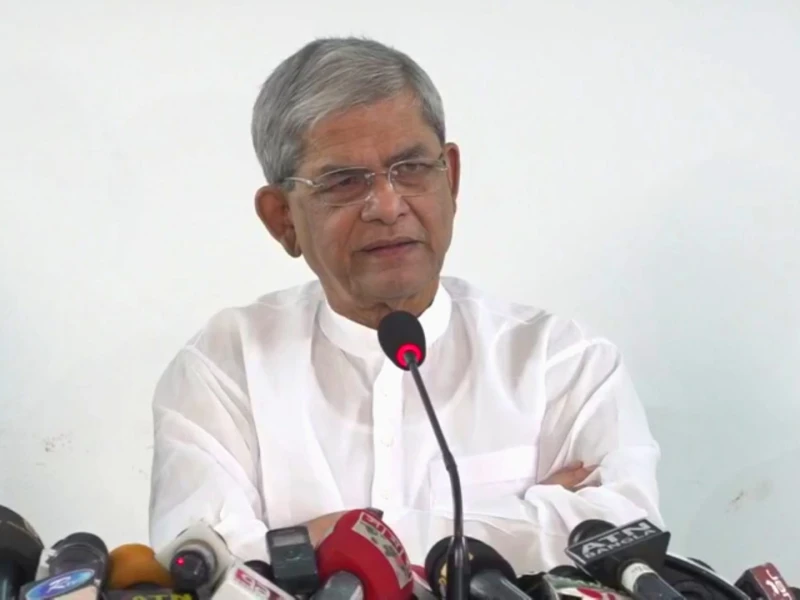Bangladesh Nationalist Party (BNP) will in no way accept the proposed referendum before the next national election as suggested by the National Consensus Commission, said party Secretary General Mirza Fakhrul Islam Alamgir.
Speaking at a press conference titled “BNP’s Analysis on the Recommendations of the National Consensus Commission” at the BNP Chairperson’s office in Gulshan on Thursday (30 October), Fakhrul made the party’s stance clear through a written statement.
Opposing the proposal for a referendum before the election, Fakhrul said the recommendations regarding the implementation of the July Charter suggest that a referendum could be held either prior to or on the day of the national election.
However, as the Chief Adviser has already announced that the next election will take place in the first half of February 2026, holding a referendum beforehand is not feasible.
Considering the time constraints, the enormous expenditure required for conducting the election, and the mobilisation of a large number of law enforcement and other personnel, organising a referendum before the election would be irrational and imprudent,” he said.
Emphasising that reforms remain a key political agenda for the BNP, Fakhrul said the party welcomed the interim government’s decision to form various reform commissions following the mass uprising.
We have already provided detailed opinions on constitutional, judicial, electoral, administrative, anti-corruption, and police reforms. Other political parties also submitted their views, and a series of discussions were held with six reform commissions,” he added.
According to Fakhrul, the National Consensus Commission was subsequently formed based on the reports prepared by those six commissions, with the Chief Adviser serving as its chair.
In his written statement, the BNP leader noted that during the commission’s first meeting with political parties, the Chief Adviser had assured that a national charter would be formulated and signed based on issues of mutual consensus, and that the elected parliament would later implement the agreed points. “He reiterated this position in several national addresses, and it was reflected in the July Declaration,” Fakhrul said.
He further explained that although some parties expressed dissent on certain points, the July National Charter 2025 was finalised and signed with these dissenting opinions duly noted.
The signing ceremony, held on 17 October at the South Plaza of the Jatiya Sangsad, was broadcast live on BTV and other electronic media,” he said.
Fakhrul, however, alleged that certain points agreed upon in consensus were later altered without BNP’s knowledge.
We only signed the pledge document at the signing ceremony, and the final version of the charter was not presented to us at that time. After receiving the printed version, we noticed that several clauses had been revised,” he claimed.
He also criticised the proposed mechanism for implementing the July Charter, saying the government has no authority to issue an order titled ‘July National Charter (Constitutional Reform) Implementation Order 2025’. “As per Article 152 of the Constitution, an ‘order’ carries the force of law, which falls under the jurisdiction of the President, not the government,” he argued.
Fakhrul further pointed out that the proposed bill to be placed in a referendum includes 48 reform clauses but omits the dissenting opinions and alternative proposals made by political parties.
This shows that the Commission’s recommendations are one-sided and coercive, aimed at imposing their agenda on the nation,” he said.
Calling the year-long discussions with the reform commissions and the Consensus Commission “futile and deceptive, he said, “The process turned out to be meaningless and a deception with the nation. In a democracy, differences of opinion among political parties are natural; dialogue was meant to address those differences. But the Commission ignored the democratic right of dissent.”
He also dismissed the proposal that the constitutional reform bill, if not completed within 270 days of the first session of the Constitutional Reform Council, would automatically become part of the Constitution.
This idea is utterly absurd and politically motivated. A bill only becomes law after being passed by parliament and approved by the President. Automatic inclusion into the Constitution defies democratic norms and the sovereignty of parliament,” Fakhrul said.


 Prev Post :
Prev Post :
